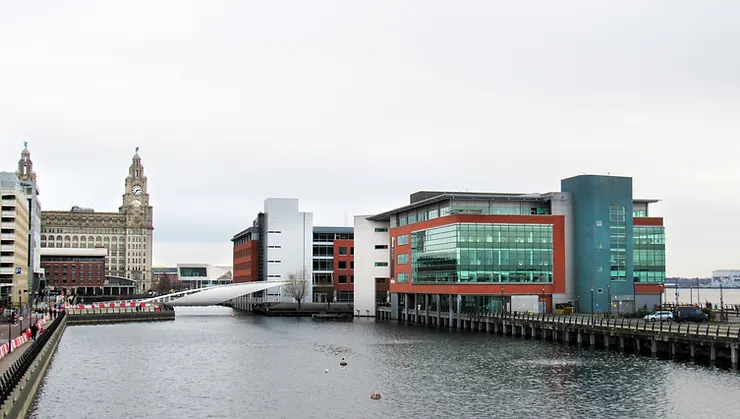A Primer for Investors in Liverpool’s Real Estate Market

Exploring Liverpool’s Real Estate Landscape
Liverpool’s real estate market presents a dynamic landscape for investors, characterized by a blend of historic charm and modern development. Known for its rich cultural heritage and vibrant city life, Liverpool is increasingly recognized for its investment potential, particularly in buying property. A notable trend in the market is the rise in off-plan property investments in Liverpool. These developments, often located in revitalized areas, offer investors an opportunity to purchase properties at a competitive price before they are completed.
This approach not only capitalizes on the city’s growth trajectory but also allows for potential appreciation in value as the projects reach completion. For investors looking at buying property in Liverpool, the market offers a diverse range of options from luxury apartments to traditional terraced houses, catering to various investment strategies and budgets. The current trends indicate a robust and growing market, with opportunities for both short-term gains and long-term capital growth.
Why Liverpool? Advantages for Property Investors
Liverpool stands out as a prime location for buying property, offering a unique combination of economic vitality, ongoing regeneration, and rich cultural heritage. The city’s economic growth is a key driver, buoyed by significant investments in business, technology, and education sectors, creating a robust job market. This economic upswing attracts a diverse population, bolstering the demand for residential and commercial properties.
Investment property sourcing in Liverpool is further enhanced by numerous regeneration projects. These initiatives are transforming areas with new housing, commercial spaces, and amenities, creating vibrant communities and increasing property values. Additionally, Liverpool’s cultural significance, with its iconic waterfront, historic buildings, and dynamic arts scene, adds to its appeal. This blend of economic and cultural dynamism makes Liverpool an attractive destination for both domestic and international investors, offering the potential for strong rental yields and capital growth.
Understanding the Local Market: Types of Properties and Areas
Liverpool’s real estate market is diverse, encompassing a range of property types to suit different investment strategies. Residential properties include modern apartments in city-centre high-rises, traditional terraced houses in suburban areas, and luxury homes in affluent neighbourhoods. For those interested in commercial investments, Liverpool offers retail spaces, office buildings, and industrial properties.
Areas like the Baltic Triangle and the Knowledge Quarter are popular for their proximity to universities and thriving business hubs, making them ideal for rental investments. The city centre, known for its shopping, entertainment, and transport links, attracts young professionals and tourists, offering lucrative opportunities for short-term rentals and pro property management services. Suburban areas like Allerton and Woolton offer a more residential setting, appealing to families and long-term renters. Understanding these area-specific characteristics is crucial for tailoring investment strategies to maximise returns in Liverpool’s property market.
The Impact of Economic and Demographic Trends
Liverpool’s property market is significantly influenced by diverse economic and demographic trends. The city’s ongoing economic growth, spurred by investments in sectors like technology, healthcare, and education, directly impacts the real estate sector. This growth fuels employment opportunities, attracting a diverse workforce and increasing the demand for housing, both rental and ownership. Such economic vitality makes the idea of a home property bond, a financial product securing property investment, increasingly appealing to investors.
Demographically, Liverpool is experiencing shifts that affect property demand. The city’s growing student population, with multiple universities and colleges, has led to a surge in demand for student housing. This presents an opportunity for investors to explore the student accommodation sector, where a bond for property can be a viable investment option. However, catering to this market requires consideration of factors like location, affordability, and amenities that appeal to students. Understanding these economic and demographic trends is crucial for investors aiming to make informed decisions in Liverpool’s dynamic property market.

Liverpool’s Student Housing Market: Opportunities and Considerations
The student population in Liverpool plays a crucial role in shaping the real estate market, particularly in terms of rental housing demand. Home to several universities, the city attracts a large number of students annually, creating a consistent need for student accommodation. This presents a lucrative opportunity for investors in the rental sector. When investing in student housing, it’s important to consider factors like location—proximity to universities and amenities—and the type of accommodation that appeals to students, such as furnished apartments or shared housing.
However, investors should also be mindful of the cyclical nature of student tenancies and the importance of maintaining properties to attract and retain tenants. Additionally, understanding students’ budget constraints is key to setting competitive rental prices. Offering well-located, well-maintained, and reasonably priced accommodations can make investing in Liverpool’s student housing market a rewarding venture.
Navigating Legal and Regulatory Frameworks
Investing in Liverpool’s real estate market requires an understanding of the local legal and regulatory frameworks. This includes compliance with property standards, safety regulations, and tenancy laws. For instance, landlords must ensure their properties meet specific safety standards, such as fire and electrical safety, and obtain necessary certifications. Understanding and adhering to tenancy laws, which govern landlord and tenant rights and responsibilities, is also crucial.
For those unfamiliar with these regulations, consulting with legal experts or property management firms can be invaluable. These professionals can provide guidance on compliance, help navigate complex legal landscapes, and avoid common pitfalls like unlawful eviction practices or non-compliance with safety standards. Staying informed and compliant not only protects investors from legal issues but also enhances the reputation and appeal of their rental properties.
Financial Aspects: Funding and Return on Investment
In Liverpool’s real estate market, understanding the financial aspects, including funding options and return on investment (ROI), is crucial for investors. Financing property investments can be achieved through various methods, such as mortgages, property investment loans, or leveraging existing assets. Each of these options comes with its own set of considerations, like interest rates, loan terms, and eligibility criteria. Investors should assess these factors to choose the most suitable financing method for their needs and investment goals.
Regarding ROI, Liverpool’s property market offers promising potential due to its continuous growth and development. However, ROI can vary based on factors such as property location, type, and market conditions. Investors should conduct thorough market research and financial analysis to estimate potential rental yields and capital appreciation. This includes understanding the costs associated with purchasing, maintaining, and managing properties. A well-chosen investment in Liverpool can yield substantial profitability, but it requires careful financial planning and market insight.

The Role of Technology in Liverpool’s Real Estate Market
Technology plays a significant role in enhancing the property investment experience in Liverpool. Advancements in digital tools and platforms are streamlining various aspects of property investment and management. Online marketplaces and property portals provide investors with easy access to extensive listings, market data, and trends, aiding in informed decision-making. Virtual tours and digital floor plans allow for remote viewing of properties, a significant advantage, especially for international investors.
In addition, property management software and applications are revolutionizing how investors manage their properties. These tools offer functionalities like automated rent collection, maintenance request tracking, and efficient communication with tenants. Technology is also enabling better market analysis and investment forecasting, providing investors with insights into potential ROI and market dynamics. By leveraging these technological advancements, investors in Liverpool’s real estate market can optimize their operations, enhance their investment strategies, and stay ahead in a competitive market.
Risks and Challenges in Liverpool’s Property Investment
Investing in Liverpool’s property market, like any other, comes with its own set of risks and challenges. Common risks include market fluctuations, which can affect property values and rental yields. Economic downturns or changes in local policies can also impact the market. To mitigate these risks, investors should diversify their portfolio across different types of properties and locations within the city.
Another challenge is property management, particularly for investors who are not based locally. Ensuring properties are well-maintained and tenancies are managed effectively can be demanding. Employing a reliable property management service can alleviate this issue. Additionally, staying informed about local market trends and regulatory changes is crucial. This proactive approach helps investors adapt their strategies to changing market conditions, ensuring long-term success and stability in their investments.
Looking Ahead: Future Trends and Predictions
The future of Liverpool’s property market looks promising, with several developments anticipated to influence long-term investment outlook. The city’s ongoing regeneration projects are set to further enhance its appeal, potentially leading to increased property values and demand. The growth of sectors like technology and education in Liverpool is also expected to attract a diverse population, sustaining the need for various types of housing.
In terms of trends, there is likely to be a continued focus on sustainable and eco-friendly developments, aligning with global shifts towards environmental consciousness. Additionally, the increasing role of technology in real estate transactions and property management is expected to continue, making investments more accessible and efficient. Overall, the outlook for Liverpool’s property market is optimistic, with opportunities for both capital growth and rental yields, making it a worthwhile consideration for investors looking at long-term prospects.






